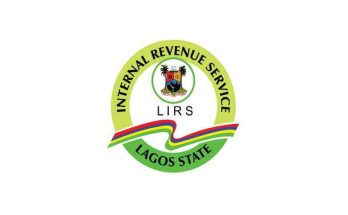There are claims that the Minister of the Federal Capital Territory (FCT), Nyesom Wike, is planning to use the Rivers State Assembly to remove the current governor, Sim Fubara, from office.
People have been speculating about a political disagreement between Wike and Fubara regarding who has control over Rivers State.
Before Governor Sim Fubara of Rivers State can be impeached, several steps and procedures outlined in the Nigerian Constitution must be followed. Here are the key things that need to be done before an impeachment can occur:
- Allegation of Gross Misconduct: A notice of allegation in writing, alleging gross misconduct on the part of the Governor, must be signed by not less than one-third of the members of the State House of Assembly. This notice initiates the impeachment process.
- Service of Notice: The Speaker of the State House of Assembly must serve the Governor and each member of the State House of Assembly with a copy of the notice of allegation within 7 days. But some recent reports have confirmed that the Rivers State House of Assembly has given Governor Sim Fubara a notice of impeachment. This information was shared on Monday, October 30, by a correspondent from Channels TV during their morning news program called “Sunrise Daily.”
- Governor’s Right of Reply: Governor Fubara has the right to reply to the allegation, although it is not mandatory. Any statement in reply to the allegation must be served on each member of the State House of Assembly.
- Motion for Investigation: Within 14 days of the presentation of the notice, the State House of Assembly must pass a motion, without debate, to determine whether or not the allegation shall be investigated. This motion requires at least a two-thirds majority of all members of the State House of Assembly.
- Panel Appointment: If the motion for investigation is passed, the Chief Judge of the State Hon. Justice Simeon Chibuzor Amadi, appoints a Panel of seven persons who are of unquestionable integrity to investigate the allegations. Panel members cannot be part of any public service, legislative house, or political party.
- Panel’s Findings: The Panel is given three months to report its findings, and the Governor has the right to defend himself during the proceedings. The findings are reported to the State House of Assembly.
- Resolution for Impeachment: If the Panel’s report indicates that the allegations have been proven, a resolution for the adoption of the report is moved in the State House of Assembly. This resolution must be supported by not less than a two-thirds majority of all the members of the State House of Assembly.
- Governor’s Removal: Upon the adoption of the resolution, the Governor Fubara will now be impeached and must immediately vacate the office. The Deputy-Governor assumes the role of Governor, and there is no recourse to legal challenges against the impeachment itself.
It’s important to note that while the impeachment itself cannot be challenged in court, recent court cases have established that the process leading up to the impeachment can be legally challenged. This highlights the significance of adhering to the constitutional procedures when attempting to impeach a sitting Governor in Nigeria.








